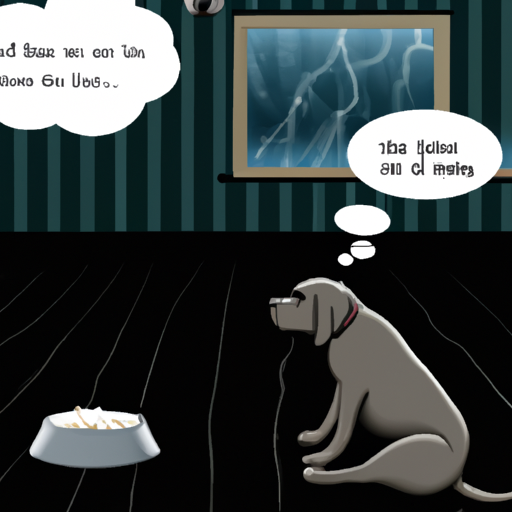Anxiety in dogs can be a serious issue, impacting not just the dog’s quality of life, but also your bond with your furry friend. Understanding what causes anxiety can help you to better care for your dog and manage their symptoms.
1. Changes in Environment
Just like humans, dogs can be sensitive to changes in their environment. This could be a change in their home, such as moving to a new house, or even minor alterations like new furniture or a change in your daily routine.
- Moving: Moving to a new home can be a major stressor for dogs. They are creatures of habit, and a new environment can cause anxiety.
- Routine Changes: Dogs thrive on routine. If their daily schedule is disrupted, they may become anxious.
Table: Common Environmental Changes and Their Impact on Dogs
| Change | Potential Impact |
| —— | ————— |
|Moving to a new home| High Anxiety|
|Changes in daily routine| Medium to High Anxiety|
|New furniture or home renovations| Low to Medium Anxiety|
2. Separation Anxiety
Separation anxiety is a common cause of anxiety in dogs. They become anxious when left alone or separated from their family members. This can lead to destructive behaviors, such as chewing on furniture or excessive barking.
3. Fear and Phobias
Dogs can develop fears and phobias of certain objects, people, or situations. This can be due to a traumatic experience, lack of socialization, or even genetic factors. Common fears include loud noises, strangers, and other dogs.
4. Aging and Health Issues
As dogs age, they can develop cognitive dysfunction syndrome, which is similar to Alzheimer’s in humans. This can lead to confusion and anxiety. Other health issues, such as vision or hearing loss, can also cause anxiety in dogs.
5. Lack of Socialization
Socialization is crucial for dogs, especially during their puppy years. Without proper socialization, they may become fearful of other dogs, people, or new situations, leading to anxiety.
Frequently Asked Questions (FAQ)
Q: Can anxiety in dogs be treated?
A: Yes, there are various treatments available, including behavior therapy and medication. Consult with your vet for the best treatment plan for your dog.
Q: How can I help my dog with anxiety?
A: Maintaining a consistent routine, providing plenty of exercise and mental stimulation, and using calming techniques can help. It may also be beneficial to consult with a dog behaviorist.
Q: Are certain dog breeds more prone to anxiety?
A: Yes, some breeds are more prone to anxiety than others. However, any dog, regardless of breed, can develop anxiety.
Q: Can a dog’s diet contribute to anxiety?
A: Yes, poor nutrition can contribute to anxiety in dogs. A balanced diet is essential for your dog’s overall health and well-being.



